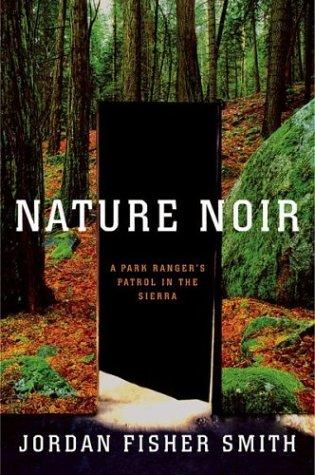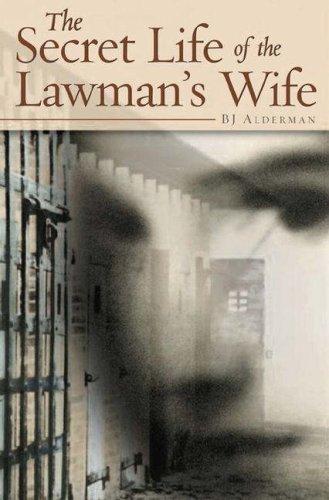Auld Lang Syne
As New Year's Eve rapidly closes upon us, I am reminded of this Scots phrase from Robert Burns. Auld Lang Syne: literally translating into English as “old long since” — or, more colloquially, perhaps: “Long, long ago . . .” A time to look back, to take stock, perhaps to dissect or deconstruct our past actions or thoughts . . .
Dissection can be messy.
I’m no book reviewer. I’ve never been paid to write a book review, nor have I ever written one before. This is not to knock book reviewers. Many do a wonderful job. I read book reviews just like anyone else – hoping to find clues to my next good read.
It’s a job I view with great trepidation however. Because:
(A) I worry about hurting people’s feelings.
(B) To me, reviewing books is just too much like dissecting them.
Whether the type of dissection under discussion is physical, mental or literary, my fear is that after you perform a dissection, you still end up with the guts of a once-living thing cut out, catalogued and stored separately (at least temporarily). Or — if I were handling the job — probably strewn all across creation.
I suspect Lucy Ricardo would make a better M.E. than I would; by the time I completed an autopsy, there’d probably be entrails hanging from the overhead lights. Not intentionally, of course; it’s just the way I do things—you should see what our kitchen looks like after I cook a meal. (Comparing autopsies to cooking . . . can’t tell I recently watched
Sweeney Todd on DVD again, can you?)
As for literary dissection . . .
Dismembering story elements for study
Well, it still seems pretty messy to me. And, just as chilling. Even deconstructing a sentence seems to rob it of the life and character it once had. Clauses, sub clauses, words – each forever ripped from the bosom of its family, stored separately, catalogued, labeled.
And, quite dead.
Concerning
Self-dissection — well that’s even more tricky.
I suppose dissecting your own writing is easier than dissecting your own body, but only
just easier in my opinion. I sometimes have a terrible time trying to tell what’s wrong with a story I’ve written, even when I can clearly
feel the “wrongness” within some certain part of it. And that problem increases exponentially when I get involved in novel editing. If you’ve been a faithful reader, then you know that I often turn to a critique group, for help, at times like these.
But one of the stranger tricks I’ve also learned (one which has helped me quite a bit) is to read works by now-best-selling authors, written back when they were in their early years — still “learning the ropes” as it were. The ease of recognizing errors committed in their earlier days is probably comparable to the relative ease of performing an autopsy on someone else, versus pulling one on my own cadaver. (I mean you have that whole “Dead people usually find it difficult to make voluntary movements,” thing to overcome.)
Comparing what went wrong in these early writings, against the way these authors surmounted their “writing problems” in later work, gives me the chance to recognize problem-patterns, then look for them in my own writing. Sort of like a med student learning to diagnose damaged organs contained within live bodies, by examining fatally flawed organs in cadavers. Such study provides the opportunity to seek out and diagnose flawed areas in my own work. It’s not quite as hands-on as an autopsy might be, or as I personally might prefer. But, I’ve learned to try and Go With the Flow! when it comes to the touchy-feely side of writing.
Oddly, perhaps, this is also one of the reasons Felix Francis’s writing appealed to me over the past few years. The son of mystery great Dick Francis, Felix has been finding his way from teaching physics to (and through) the writing thicket.
 Not an easy trek.
Not an easy trek.
His writing is much like his father’s in many ways. It’s as if there are similar family features on the faces of both their prose. But, especially in the beginning, there was a certain, unfortunate “flatness” to Felix’s writing — particularly compared to his father’s.
I don’t mean Felix’s stories suffered from flat characters; most were well-rounded and well-drawn. Nor do I mean that he's a bad writer; he's not. He's a good writer. It's just that, where Dick Francis' stories stood up and danced, Felix's seemed to fall flat on my tongue. His writing was flat in the same way that soda left in an open bottle becomes flat. Reading Felix’s work, I felt as if I were reading his father’s work, but it had lost its fizz — and a lot of the flavor along with it.
Now this is a problem I can recognize and sympathize with. I sometimes struggle with “flat writing” in my own work — and I find it one of the most perplexing problems to correct. So I was overjoyed to encounter Felix’s flat writing, because I knew it was so similar to his father’s, that I just might be able to diagnose the cause by comparing the two. In turn, this might open a door to healing my own writing ailments. “Let’s see if we can’t just find out,” I thought to myself, “what the reason for this loss of fizz is.”
Thankfully, I’ve got a pretty full library of Dick Francis paperbacks lying around my office (Yes: “lying around” – all part of that “entrails hanging from the light fixtures” thing!), so I got cracking. And those differences, I discovered, were primarily very small. Tiny even.
Perhaps the truest insight I gained was that the root of the problem (and the reason it’s such a tough nut to crack) lies in the tiny size of the transgressions, multiplied by the number of times they occur.
In retrospect, I decided the nature of the difficulty shouldn’t have surprised me. After all, while lack of carbonation (because it’s all escaped into the atmosphere) lies at the root of flat soda’s problem, it
manifests itself through the absence of
millions of tiny bursting bubbles. One overall problem -- but, lots of missing bubbles causing it.
One tiny bubble failing to rise to the surface of the soda, and burst there, would hardly be noticeable; a million missing bubbles and the soda is flat, lifeless. It’s no longer effervescent.
In other words: I discovered that (to me, at any rate) flat writing doesn’t seem to be a single problem; it’s a number of tiny problems that snowball, finally combining to rob the piece of flavor.
For example:
One difference I discovered was that Felix Francis’ characters often made outright philosophical statements. Either the reader agreed with those
statements, or that reader didn’t agree with the
character. I suspect that a little of this goes a long way toward erecting a barrier that keeps a reader, who didn't agree with the expressed opinions, from fully identifying with (and thus caring about) a protagonist, if that protagonist is the character making those statements. And that can be a big problem.
Dick Francis’ characters, on the other hand, seldom made philosophical statements
as absolutes. Particularly when working in first person, his POV characters tended to couch such statements in gentle, very subtle ways, nearly always incorporating words such as
nearly,
almost,
sometimes, or
some to soften the blow.
It seems to me that using these "wiggle-room" words permits a reader to disagree with the sentiment expressed, but still agree and connect with the character, because the character’s own description has left room for that disagreement. It’s a subtle difference, but over the length of a novel I believe it can have a great impact.
One way to view this recurring difficulty is to think of these little problems as grains of sand at the beach. A beach is composed of millions of tiny grains of sand; if a few grains are misshapen — rough, or sharp edged — it makes little difference to your feet. The beach texture is still inviting. But, keep substituting misshapen grains in place of smooth ones, and eventually the sand texture becomes a little too rough on the toes. The beach becomes uncomfortable to walk on, barefoot. A person finds it hard to settle-in and relax on that beach. Next time they want to spend some time by the ocean, they’ll probably go somewhere else. Though they might have a hard time explaining why.
If I were the kick-ass analyst I wish I were, I would have been able to isolate some sort of Seldon’s Laws (to borrow a term from Asimov's
Foundation series) concerning what constitutes the equivalent of “carbonation” in writing. In the real world, however, I’m just not that bright. Consequently, to me, it seems pretty difficult to fix a beach (or manuscript), once it’s filled with a bunch of misshapen sand grains. Because, you can’t just correct one problem to fix the overall flaw. Instead, you’ve got to first
find then
polish a lot of misshapen little pebbles. Not a quick and easy task — whether we’re talking about beaches, or manuscripts.
For a beach, you might be better off just scraping it clean, then bringing in all new sand. For a manuscript? Well, it might be a good idea to take a tip from the great Asimov and “run it through the typewriter again” completely rewriting that section.
For Felix Francis, however, there seems to have been another solution.
Gamble, Felix’s first book to be published since the death of his father, came out over the summer. Circumstances conspired to keep me from getting my hands on it until last week, however. And, I have to tell you: in my opinion his writing has improved by leaps and bounds. And, it is no longer flat.
In fact, I’ve been thinking a lot about it over the past week. (The kids have been home 24/7 with Winter Break, so it’s not like I was going to get much writing done.)
I’ve never met Felix Francis, haven’t even seen him at a book signing. So I did some online searching and this, coupled with my knowledge that his father died in 2010, has got me contemplating a possible reason for the change.
You see, part of what I think I noticed is that his prose has lost a few of those “family trait” characteristics. Don’t get me wrong; you can still clearly see the resemblance between the writing of father and son.
But, sometimes as a person grows, s/he loses some of the striking similarity in features that were so clearly prevalent in earlier years. It’s just part of the physical metamorphosis of growing up. Other times, a man’s son may do something that would be so uncharacteristic for his father (not necessarily a bad or evil thing—just different from what the father would do) that people are forced to realize the son isn’t just a carbon copy; he’s “his own man” so to speak.
This sort of subtle (on one level), but striking (on another) change, is what I believe I saw in Felix Francis’ writing. You could chalk it up to the idea that his writing is simply maturing, and no one could prove you wrong. But, I suspect another factor is also at play.
This is the first novel he’s written, in which his father has played no role. According to an interview in the British racing magazine
Eclipse, Felix said that during the previous novels: “I would write the prose and he (Dick Francis) would then make suggestions or correct me if I had some of the racing not quite right. We never argued much – he seemed to like what I did.”
I’m not saying the earlier problems were being caused by Dick Francis. I’m sure that wasn’t the case. Instead, I’m left wondering if maybe Felix was stretching into a zone, when writing
Gamble, which he couldn’t comfortably operate in when his father was alive.
The pressures on a son, writing under his father’s byline — particularly with the knowledge that his father is going to look over what he’s written before it gets sent to a publisher — are sure to be much different than if the son writes under his own byline.
Gamble is billed on the cover as: “Dick Francis’s Gamble by Felix Francis.” This is subtly, but powerfully different from the billing Felix received on the previous novels he (evidently) largely wrote. Those were billed as being written by: “Dick Francis with Felix Francis.”
Later in the
Eclipse interview, when Felix was asked if his father had left lots of book idea notes, Felix replied: “Sadly there are no notes. It’s all down to me now. It is a bit strange that he is no longer around to read the manuscript and criticise my grammar, but I am confident that he would be happy with the result.”
I believe he’s right; Dick Francis would be happy. Because, what I’m convinced I read in
Gamble was a fresh new thing called Felix Francis’ voice. I don’t think he’s got it completely locked in yet. But, I do think he’s got at least one foot in the groove and is closing on target. When he gets there — who knows? Maybe his body of work will even eclipse his father’s.
One thing I’m sure of, however: choosing to write with his new voice took guts. Felix took the risk that long-time Dick Francis fans might slip away. It was a gutsy gamble to use his own voice in the novel. For Felix Francis, however, it looks as if his
Gamble will probably pay off.
In Closing:
The great Dick Francis died in 2010, but I didn’t blog back then. So, during this time of Auld Lang Syne when we often look back in remembrance, I’d like to take a moment to acknowledge Dick Francis’ legacy through a series of photos borrowed from Felix Francis’ website.

Dick Francis as racing fans must have thought of him.

Dick Francis as I (for some reason) always think of him.
I love the pose here. His stance is so reminiscent of the jockeys he wrote about. And . . . gee, who are those two women he's talking to?
Dick Francis with his wife, Mary.

(L to R) Felix Francis, Dick Francis, and Felix's older brother, Merrick
(That photo at the top of today's blog, incidentally, is Dick Francis finishing a ride he may not have cared to remember too often.)
Happy New Year!
See you in two weeks,
Dix























